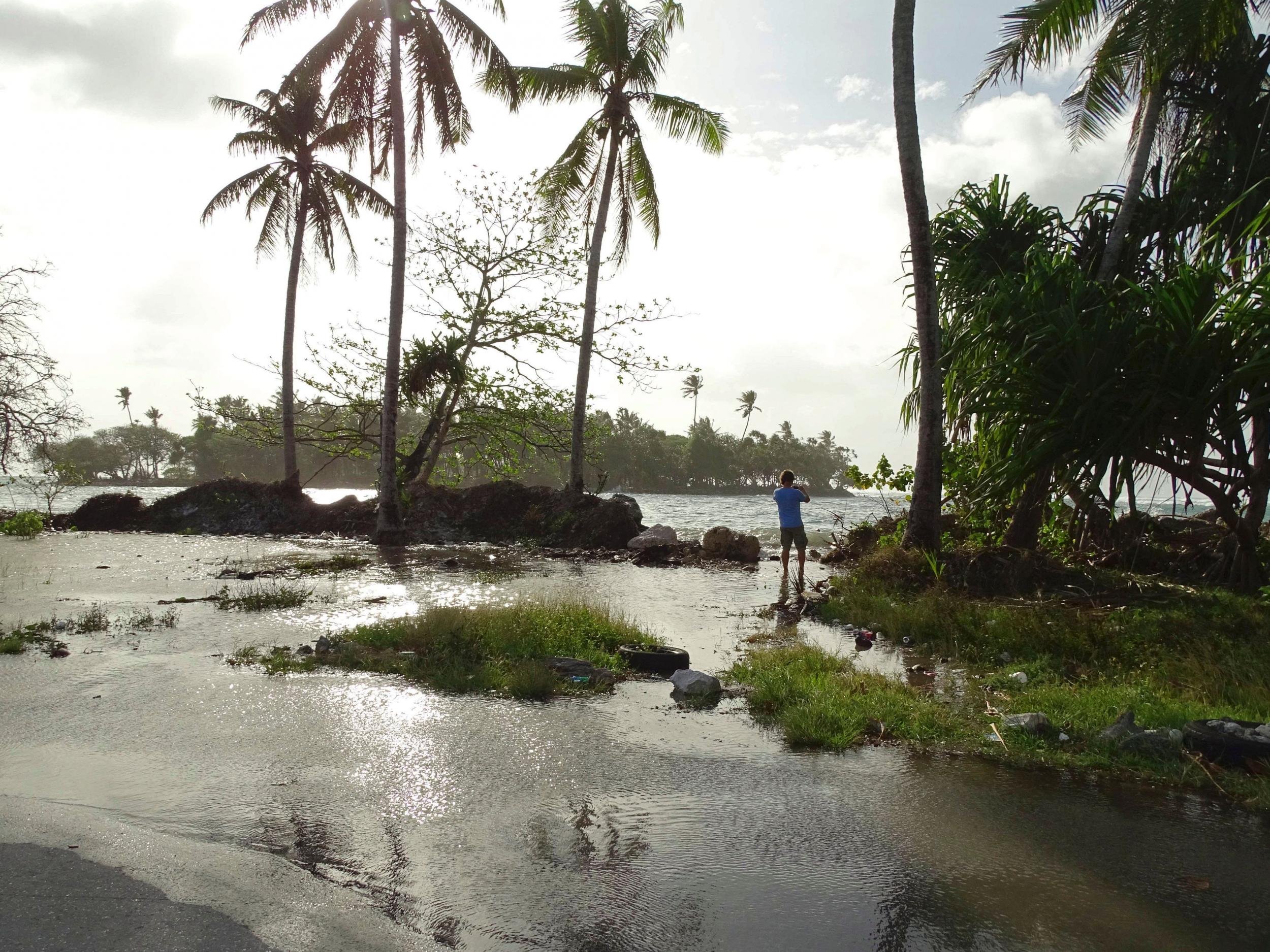Rising sea levels could make thousands of islands from the Maldives to Hawaii 'uninhabitable within decades'
Damage to infrastructure and contamination of fresh water will mean people can no longer live in low-lying coral atolls

Your support helps us to tell the story
From reproductive rights to climate change to Big Tech, The Independent is on the ground when the story is developing. Whether it's investigating the financials of Elon Musk's pro-Trump PAC or producing our latest documentary, 'The A Word', which shines a light on the American women fighting for reproductive rights, we know how important it is to parse out the facts from the messaging.
At such a critical moment in US history, we need reporters on the ground. Your donation allows us to keep sending journalists to speak to both sides of the story.
The Independent is trusted by Americans across the entire political spectrum. And unlike many other quality news outlets, we choose not to lock Americans out of our reporting and analysis with paywalls. We believe quality journalism should be available to everyone, paid for by those who can afford it.
Your support makes all the difference.Most low-lying atoll islands are likely to become uninhabitable by the middle of the century, according to a new study.
Scientists predict that as sea levels rise, thousands of islands will be afflicted by frequent flooding, lack of freshwater and damage to infrastructure.
The research, published in the journal Science Advances, looked specifically at a case study from the Marshall Islands – a country already feeling the harmful effects of climate change.
However, the authors warned that their findings also apply to islands all over the world including the Maldives, Seychelles and parts of Hawaii – meaning hundreds of thousands of people could be driven from their homes.
“The tipping point when potable groundwater on the majority of atoll islands will be unavailable is projected to be reached no later than the middle of the 21st century,” said Dr Curt Storlazzi, a researcher at the US Geological Survey (USGS) and lead author of the new report.
The scientists used current global greenhouse gas emission rates to predict future impacts of the changing climate on Roi-Namur, part of the Marshall Islands’ Kwajalein Atoll.
They found that when local sea level around the island reaches one metre higher than present, at least half of the island will flood every year.
Work in this area has primarily focused on rising sea levels literally engulfing islands, but the new study by Dr Storlazzi and his team took a broader view.
Their analysis considered interactions between sea-level rise and wave dynamics over coral reefs. Such interactions will likely drive annual flooding events on atolls that will not only destroy infrastructure but contaminate island freshwater sources.
This means that islands previously thought to be safe for at least a century could in fact be severely threatened within decades.
“The overwash events generally result in salty ocean water seeping into the ground and contaminating the freshwater aquifer,” explained Dr Stephen Gingerich, USGS hydrologist and co-author of the report.
“Rainfall later in the year is not enough to flush out the saltwater and refresh the island’s water supply before the next year’s storms arrive repeating the overwash events.”
“Such information is key to assess multiple hazards and prioritise efforts to reduce risk and increase the resiliency of atoll islands’ communities around the globe,” said Dr Storlazzi.
Due to the imminent threat faced by so many island communities, the researchers called for governments to prioritise funding and adaptation efforts.
Marshall Islands politicians have been particularly vocal in calls for world governments to meet the terms of the Paris climate agreement and limit global warming due to the existential threat their country faces.
The islands are home to around 70,000 people, and experts have said it is likely they will all have to be evacuated as the sea levels rise.
The country’s former foreign minister, Tony de Brum, described a global temperature increase of over 2C above pre-industrial levels as “a death warrant for us”.
At a recent international meeting in London to agree on emissions targets for the shipping industry, Marshall Islands environment minister David Paul made an impassioned plea to those gathered to take urgent action to halt climate change.
Mr Paul said the decision would “determine whether Marshallese children born today will have the chance of a secure and prosperous life or will have to leave the land of their ancestors and set sail across the oceans to an uncertain future”.
Join our commenting forum
Join thought-provoking conversations, follow other Independent readers and see their replies
Comments